Please view our updated COVID-19 guidelines and visiting procedures →.
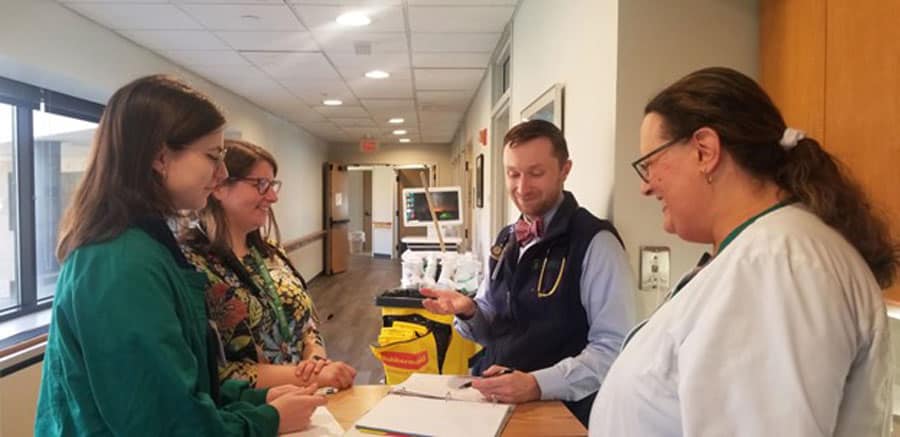
In the ever-evolving landscape of medical education, institutions that prioritize hands-on experience, interdisciplinary collaboration, and compassionate care are invaluable. The Connecticut Hospice stands out as a beacon of excellence, offering a myriad of educational opportunities for pre-med students, medical students, residents, and fellows. This blog post will delve into the educational programs provided by The Connecticut Hospice through the John D. Thomas Institute and shed some light on how they contribute to the development of well-rounded and empathetic healthcare professionals.
Before delving into the educational offerings, it's essential to understand the foundation upon which The Connecticut Hospice stands. Established in 1974, it holds the distinction of being the nation's first hospice. Its mission revolves around providing patient-centered, end-of-life care rooted in compassion, dignity, and respect. This commitment to holistic care forms the backbone of the educational opportunities offered.
The John D. Thompson Hospice Institute for Education, Training and Research, Inc. (JDT Institute), the educational ally of Connecticut Hospice, was established in 1979, when it gave its first educational conference. The JDT Hospice Institute is a vehicle for sharing the hospice philosophy with all who desire to improve the quality of care for patients (and their loved ones) experiencing an irreversible illness. It offers opportunities for students, health care professionals, administrators, caregivers, and the lay community to learn, and gain experience and skills in hospice care.
At the core of good hospice care is the interdisciplinary team approach. Every patient is cared for by a team that includes medicine, nursing, social work, spiritual, bereavement, pharmacy and volunteers. The team ensures the patient receives care at the physical, mental, and/or emotional levels, if and when needed during their journey. Connecticut Hospice offers clinical rotations in medicine, nursing, social work, and pharmacy.
Traditionally the first milestone in the long journey to becoming a practicing healthcare provider is usually shadowing other providers. Here at Branford, we offer extensive shadowing opportunities. Students can observe seasoned healthcare professionals navigating the challenges of end-of-life care, learning not only medical procedures but also the nuances of compassionate communication both in our inpatient unit as well as with our homecare team. Recognizing the importance of early exposure to hospice and palliative care, The Connecticut Hospice offers pre-med programs designed to ignite the interest of aspiring healthcare professionals and expose them to the realities of practicing medicine in our current healthcare system as well as mentor them to the requirements of applying to graduate professional programs.
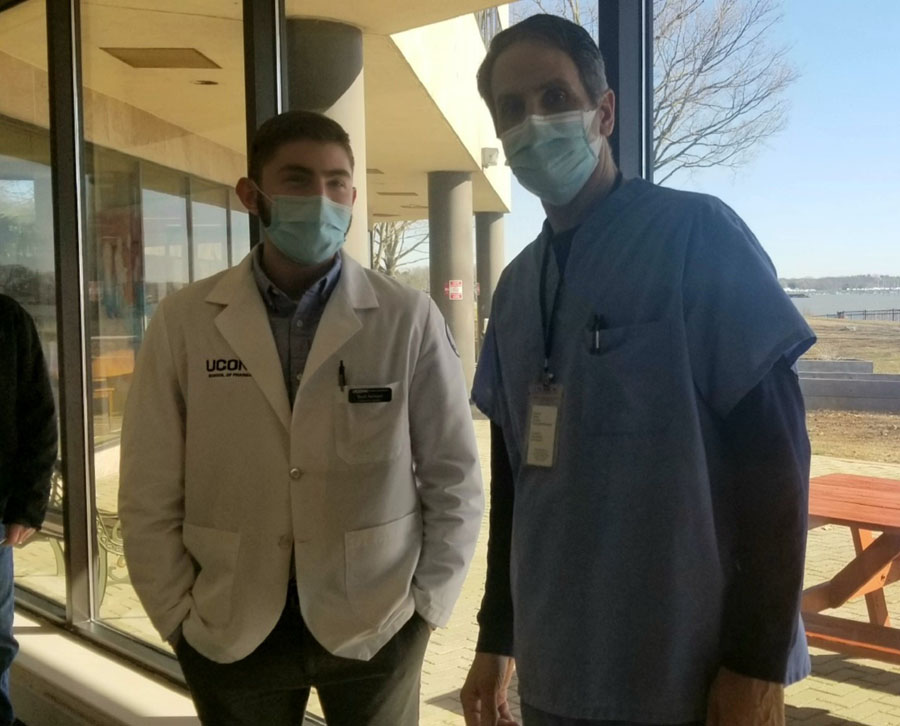
Students approved to complete clinical hours at The Connecticut Hospice are afforded a unique and enriching experience. Although many come from schools in the Northeast, the opportunities to rotate here are open for all institutions across the country. The institution recognizes the importance of exposing future physicians, nurses, social workers, art therapists, music therapists and pharmacists to end-of-life care, fostering empathy, and refining communication skills. Through structured programs, students have the chance to shadow experienced practitioners, and engage in patient care activities under the guidance of experienced mentors. This hands-on experience allows them to apply theoretical knowledge in a real-world setting, honing their clinical skills and deepening their understanding of the unique challenges in end-of-life care.
Throughout COVID, and the nursing shortage, Connecticut Hospice worked with area nursing programs to provide clinical practice hours that were standing in their way of graduating and joining the dwindling nursing pool. Yes, it is about teaching how to provide good hospice and palliative care, but it is also about sharing the importance of both hospice and palliative care in the cycle of terminal illness.
The Connecticut Hospice places a strong emphasis on interdisciplinary collaboration. Learners here actively participate in rounds that bring together physicians, nurses, social workers, and other healthcare professionals. This approach provides a holistic view of patient care, fostering an understanding of the diverse skills required in end-of-life medicine.
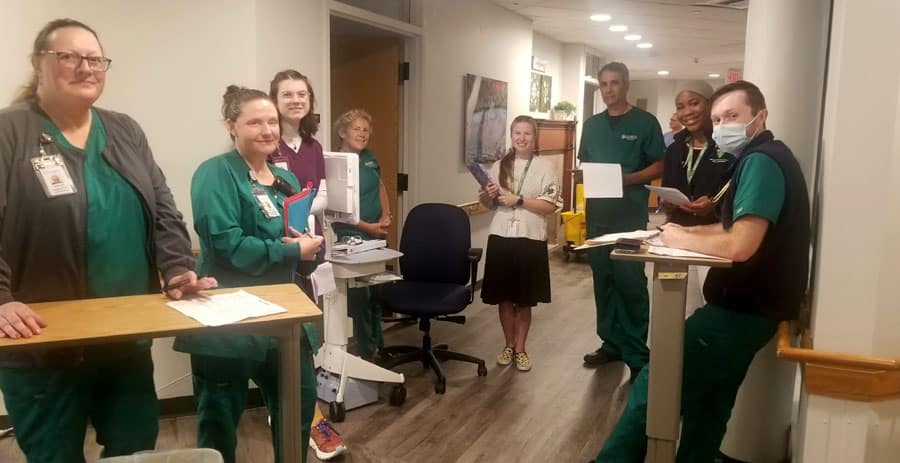
For medical residents seeking to specialize in palliative care or related fields, The Connecticut Hospice offers comprehensive clinical exposure to end of life medicine. Residents may come from any ACGME accredited program and specialty. These programs provide a structured curriculum that combines clinical experience, research opportunities, and mentorship in a variety of inpatient and outpatient settings. Rotating residents at The Connecticut Hospice benefit from a diverse range of clinical experiences. From managing complex symptoms to leading family meetings, residents are actively involved in the care of patients facing life-limiting illnesses. This exposure equips them with the skills necessary for providing compassionate and effective end-of-life care.
Students earning an advanced degree in nursing, social work, art therapy, music therapy or pharmacy spend a significant amount of time at Connecticut Hospice, quickly becoming a member of the care team and gaining unique experiences from collaborating care.
Social Workers pursuing a Masters spend their entire final year with us, allowing them the opportunity to learn from a seasoned social worker how to best guide a patient and their family through one of the most stressful events of life, death of a loved one. There are so many factors to consider when caring for a family unit, especially when death is at the core. It takes time for a social worker to become comfortable with the unique needs of a hospice population and the extended time allows for learning and experiencing from the seasoned social worker.
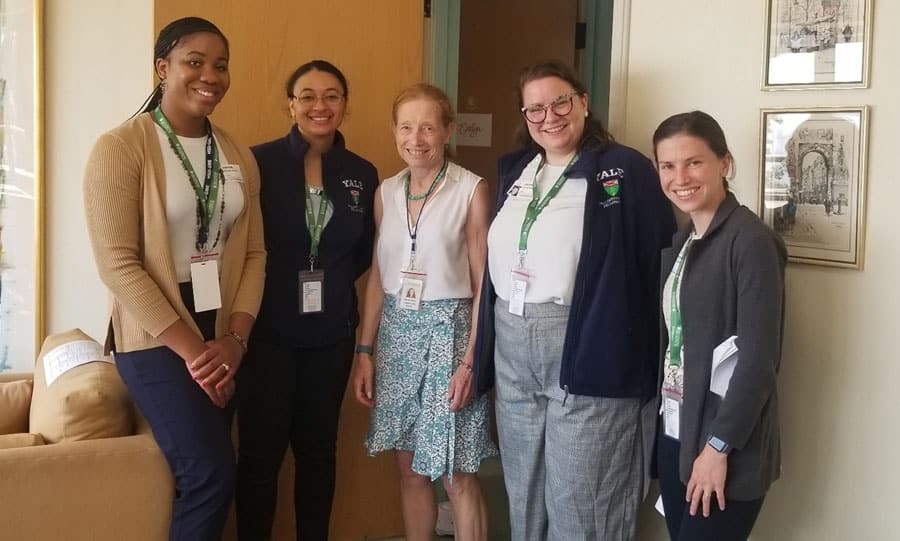
The JDT institution encourages learners across the spectrum of academia to engage in research projects that contribute to the evolving field of palliative care. By collaborating with experienced researchers and faculty members here at the Connecticut Hospice, learners get the opportunity to explore innovative approaches to symptom management, psychosocial support, and ethical considerations in end-of-life care and receiving the structured mentorship to pursue their own individual projects.
Every PharmD candidate who completes a month-long rotation with Connecticut Hospice’s onsite Pharmacy Department is required to present findings on a pharmacological topic selected prior to the start of their rotation. The findings are presented on the student’s final day to members of the interdisciplinary team who were all part of the learning experience. The collaboration between a student and those with heavy experience can create something great.
Mentorship plays a pivotal role in the residency programs at The Connecticut Hospice. Our learners work closely with our seasoned professionals who provide guidance not only in clinical matters but also in navigating the emotional and ethical dimensions of palliative care, as well as preparing for the next step in their own professional journeys.
If clinical medicine isn’t desired, The Connecticut Hospice also can offer unique individualized internships with our senior management and executive teams. Rotating through our non-profit and working directly with our executives provides the learner with a special opportunity to collaborate closely on business development plans and network with regional partners.
The Connecticut Hospice's offers tailored programs and educational workshops that cover the basics of palliative care, hospice care, pain management, and the psychosocial aspects of end-of-life care. These workshops serve as a bridge between classroom learning and practical application in the community. We offer these experiences and lectures to our community partners and travel to them to deliver these interactive and informative sessions.
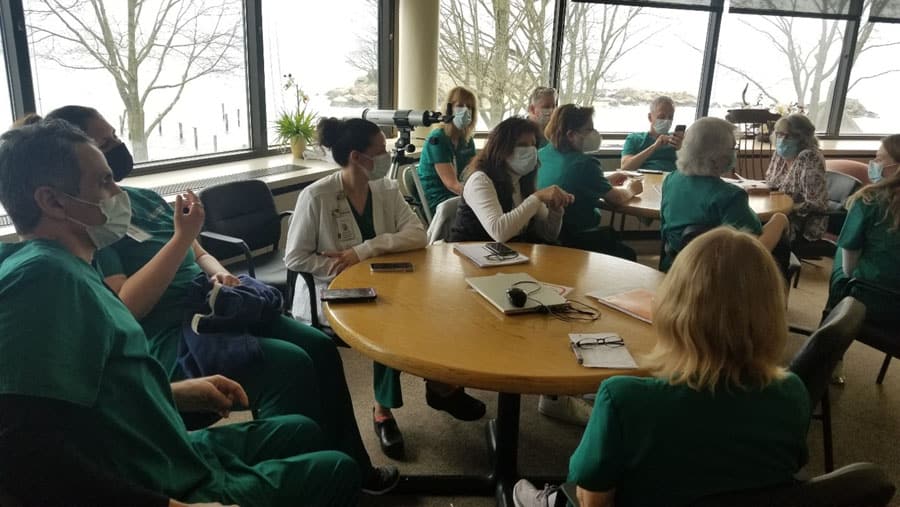
In addition to the above, The Connecticut Hospice offers a robust and enriching volunteer experience. These hands-on experiences allow each person to donate their time and/or talent to our patients in a multitude of ways. Each new academic year provides Connecticut Hospice with more than 75 medical students looking to volunteer to gain experience working with patients and families. These future healthcare providers create a positive energy that fills the building. In addition to these medical students, Connecticut Hospice is always in need of volunteers to share their talents with us. If you or your organization is interested in volunteering, please reach out to our Director of Volunteers at [email protected].
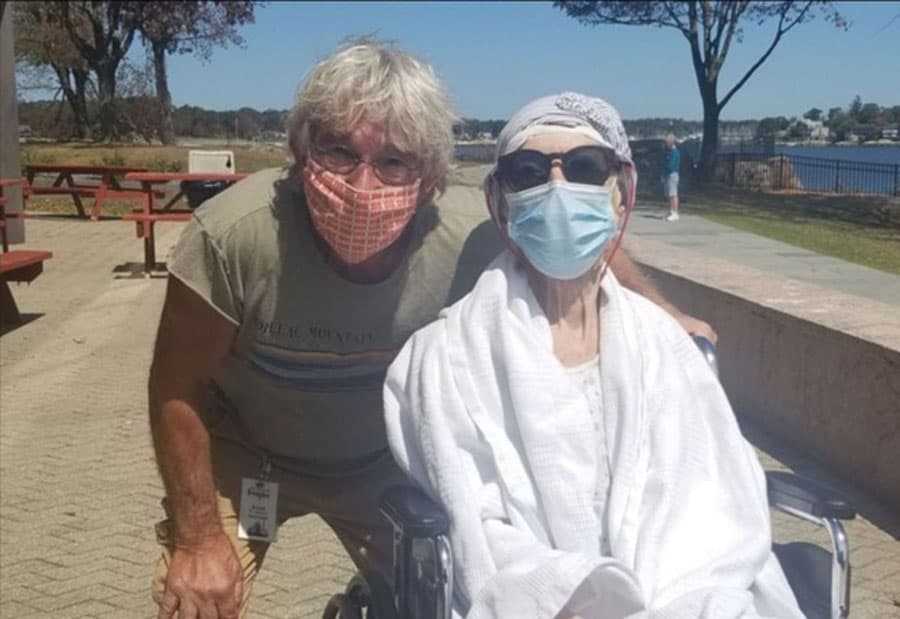
The educational opportunities offered by The Connecticut Hospice form a critical component of the institution's commitment to advancing the field of hospice and palliative care. No matter what a student’s ultimate position is in healthcare, Connecticut Hospice encourages them to take the unique experiences offered at America’s first hospice to enable them to be the best they can be throughout their career. By combining hands-on experiences, interdisciplinary collaboration, and a commitment to compassionate care, The Connecticut Hospice is shaping the next generation of healthcare professionals who will navigate the complexities of end-of-life medicine with skill, empathy, and resilience. As we look toward the future of healthcare, the lessons learned at The Connecticut Hospice serve as a guiding light for those dedicated to providing dignified and compassionate end-of-life care.
For more information on clinical rotations at Connecticut Hospice, email [email protected].

As a not-for-profit, we depend on generous donors to help us provide customized services and therapies that aren’t completely covered by Medicaid, Medicare, or private insurance.
Please make a gift to help us sustain the highest standard of care.
Admissions may be scheduled seven days a week.
Call our Centralized Intake Department: (203) 315-7540.